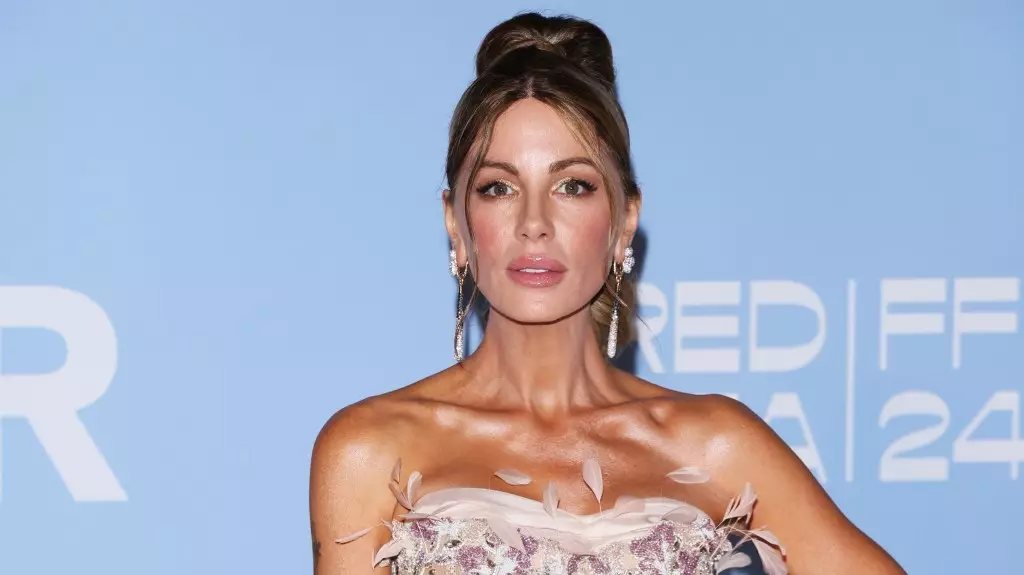In a poignant and revealing Instagram video, actress Kate Beckinsale bravely shared her instances of systemic sexism within Hollywood, illuminating the mechanisms designed to silence women who dare to expose the pervasive issues of on-set harassment and assault. Her reflections come in the wake of a scandal involving Blake Lively and Justin Baldoni, casting a renewed spotlight on the deeply entrenched misogyny that still permeates the entertainment industry.
Personal Testimonies: An Echo Chamber of Silence
In the nearly five-minute video, Beckinsale recounts her own traumatic experiences, initiating her narrative with a heartfelt disclaimer: she does not know the individuals involved in the recent controversy but feels compelled to shed light on an industry that often dismisses women’s serious complaints. She articulates an alarming reality—the mechanisms that immediately engage to discredit women reporting legitimate grievances reveal an unsettling pattern of systemic oppression.
Her recollections are not merely anecdotal; they are a powerful testament to the collective struggles that many actresses face. Beckinsale poignantly describes being assaulted at just 18 years of age, and recalls an incident where she was not only ridiculed by peers but also subjected to a relentless set of standards that relentlessly dictated her appearance and behavior on set. Such experiences are a stark reminder of the actionary responses women often encounter when they brave the task of speaking out against misbehavior.
As Beckinsale delves deeper into her narrative, she recounts instances of blatant disrespect, including derogatory remarks made by male co-stars when she confronted their troubling behavior. One particularly telling episode involves an instance where a male actor’s substance abuse resulted in significant delays during filming, yet rather than addressing the core issue, the studio’s “solution” was superficial: providing her with a bicycle to pass the time. This absurd scenario exemplifies the callousness often present in Hollywood’s response to women’s legitimate concerns.
Moreover, Beckinsale recounts harrowing instances of subjection to extreme physical demands, mentioning that the strain of enforced fitness regimens led her to lose her menstrual periods altogether on two occasions. Such revelations highlight the undue pressure actresses often face to conform to unrealistic beauty standards, exposing a culture that prioritizes aesthetic over well-being.
Beckinsale’s experiences are not limited to psychological harm; she also shares alarming stories of unsafe working conditions during physical stunts. She describes working with men who derive a disturbing satisfaction from physically endangering their female counterparts, emphasizing the urgent need for reform within stunt coordination and industry protocols. Beckinsale’s account of sustaining injuries that required MRIs serves as a scathing indictment of an industry that frequently prioritizes spectacle over safety.
Despite her resilience, Beckinsale reveals the emotional toll of speaking out. The backlash she faced—ranging from being ostracized by peers to feeling gaslighted—serves as a grim reminder of the broader implications of confronting wrongdoing in a culture where perpetrators remain protected and the victimized are left to carry the burden of shame.
One of the most disturbing truths articulated in her narrative is the pervasive denial among certain male industry figures, asserting that progress has been made and conditions have improved when, in fact, they have not. Beckinsale’s declaration that “it f—ing isn’t” challenges the complacency that often allows misogyny to thrive without consequence. This stark reality demands a conscientious effort from both men and women in the industry to recognize and address these entrenched issues.
Ultimately, Kate Beckinsale’s compelling testimony serves as a rallying cry for awareness and action against the misogyny that has long been an unspoken part of Hollywood’s fabric. Her revelations remind us that change is not just desirable; it is necessary. As more voices join the chorus demanding accountability and safety for women in the entertainment industry, perhaps we can envision a future where such injustices are met with swift and tangible consequences. This collective awakening may mark the beginning of an era where women no longer remain in the shadows, but instead stand united in strength, resilience, and a shared commitment to change.


Leave a Reply